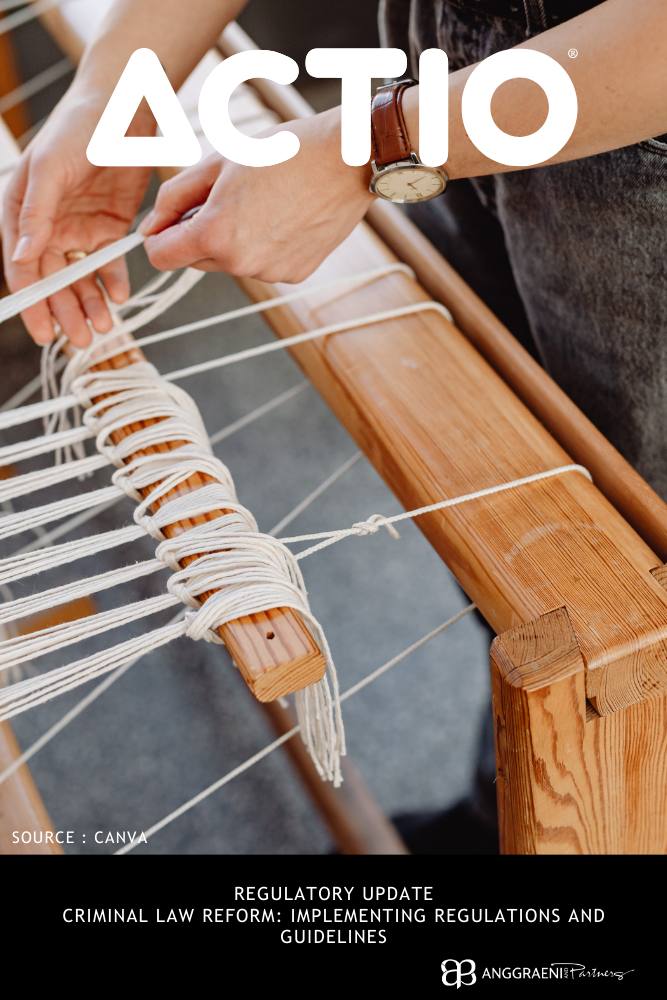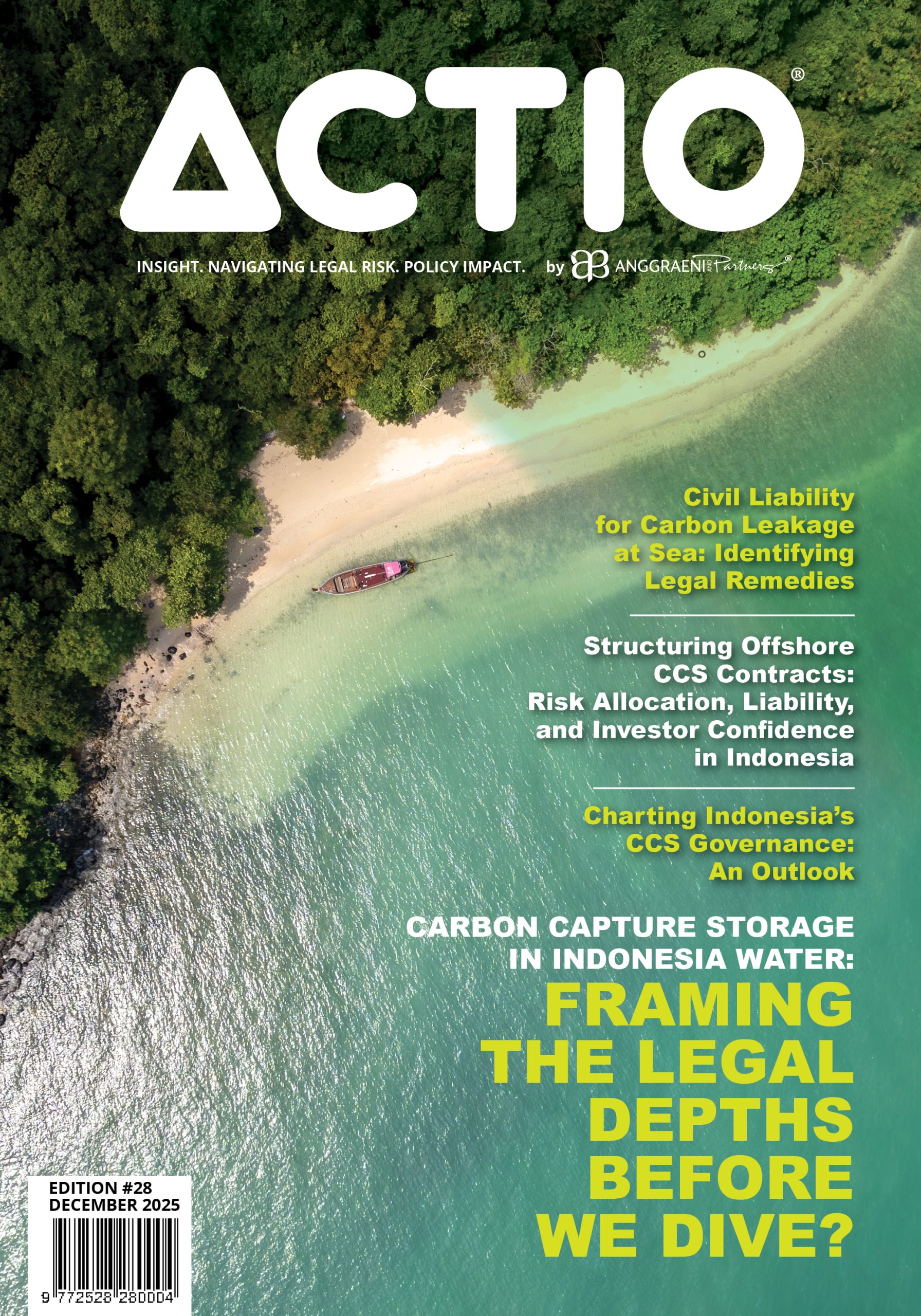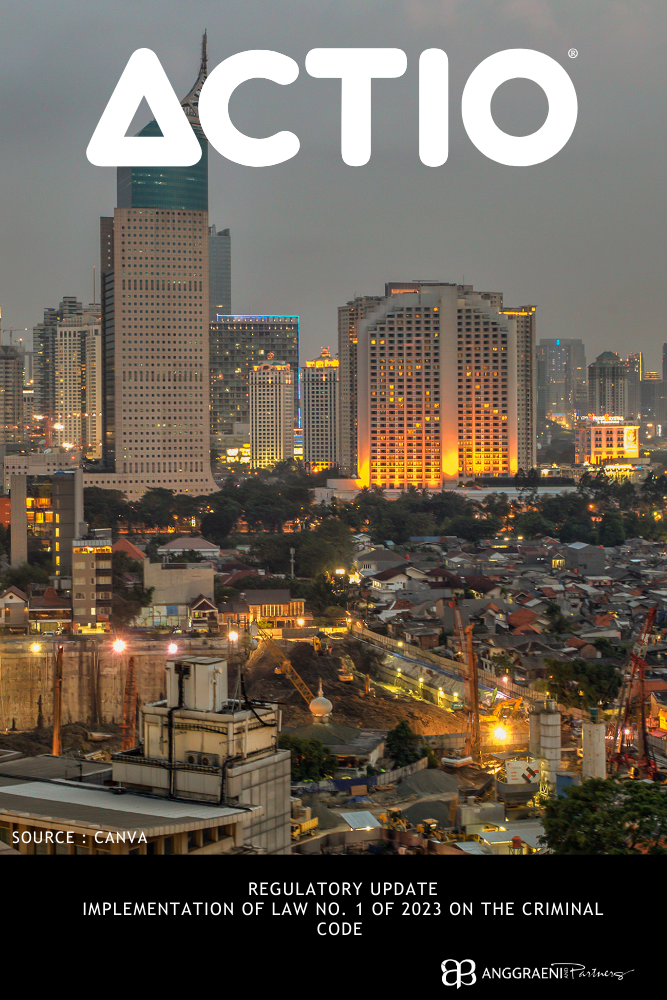- Home
- Capabilities
- ACTIO® Hub
- About Us
- Connect with Us
- AP Library
DISCLAIMER
The information contained in this Legal Insight is not intended to provide legal opinion or views of the Anggraeni and Partners law offices against a particular legal issue. Neither party may assume that he or she should act or cease to act or choose to act on a particular matter based on this information without seeking advice from professionals in the field of law in accordance with certain facts and circumstances it faces.
1. SCF Funding Mechanism
The COVID-19 pandemic has brought forth a significant impact on the national economy. One of the groups particularly affected is Micro, Small and Medium Enterprises (“MSMEs”). Based on a survey conducted by the Bank of Indonesia (“BI”), as much as 77.95% of MSMEs in Indonesia were affected by the Covid-19 pandemic in 2021. Currently, as much as 63.9% of the affected MSMEs have experienced a decline in turnover of more than 30%. According to data from the Chamber of Commerce and Industry (KADIN), since July 2020 until currently, a total of 30 million MSMEs have gone bankrupt.
A substantial obstacle currently faced by MSMEs is obtaining funding sources for business capital. With a considerable turnover decline, many MSMEs cannot return their capital and experience difficulty maintaining their business continuity.
When in fact, MSMEs have a central role in the national economy with a contribution of 61% to the Gross Domestic Product (GDP) and absorbs 97% of the total workforce. One of the alternative resources available for MSMEs is the Securities Crowdfunding (“SCF”) mechanism.
SCF is a funding scheme with a fund-raising system through the capital market, as regulated in the Financial Services Authority (“OJK”) Regulation No. 57/POJK.04/2020 as amended by POJK No. 16/POJK.04/2021 concerning Securities Offering Through Information Technology-Based Crowdfunding Services (“POJK 57/2020”). Through the SCF mechanism, MSMEs may obtain funding through securities offerings which include shares, bonds, or joint ownership certificates (sukuk) to investors through a system provided, managed, and operated by the Crowdfunding Service Provider (“Provider”).
In return, through SCF, Investors may purchase and obtain business ownership through shares, proof of debt ownership (bonds), or joint ownership certificates (sukuk).
The number of shares obtained is in accordance with the amount of their contribution to such MSME business.
In addition, Investors will receive profits in the form of dividends or profit sharing from business profits, which are generally distributed periodically.
2. Potential Risks of SCF Investment
Investments on MSMEs through SCF tend to have higher yields compared to conventional shares of publicly listed companies. The average yield of SCF per year is 20-40% per year.
Whereas, the Composite Stock Price Index (JCI) is known to be only 10.08% throughout 2021. However, investors
must also pay attention to risks in investing through SCF. These risks are business risk, investment loss, lack of liquidity, scarcity of dividend distribution, and dilution of share ownership. Business risk is an action related to the possibility of an unexpected loss to occur. There are several factors that may induce risks in business, such as: individuals, employees, management, company systems, and poor strategies. Furthermore, investment risk is a condition where investors have the potential to receive profits or investment returns that are not as expected.
Whereas, liquidity risk is defined as a risk where a company or individual are unable to convert their assets into cash, thus unable to fulfill their financial obligations in the short term. In addition, the scarcity of dividend distribution may be caused by poor performance of the invested business, as well as the potential for dilution of share ownership. Finally, share dilution is defined as a decrease in the percentage of share ownership in a company due to additional capital that is not accompanied by the participation of the old shareholders.
Regarding SCF risk mitigation, such is regulated in Chapter VI of POJK 57/2020 in conjunction with POJK 16/2021. According to Art. 66, Providers and Users (Investors and Issuers) are required to mitigate risks.
Whereas, “risk mitigation” is defined as mitigation of all risks of Crowdfunding Services, including business risk, investment loss risk, liquidity shortage risk, dividend distribution scarcity risk, and share ownership dilution risk. Furthermore, according to Art. 85, if the Providers and Users do not mitigate the risks as mentioned above, they may be subject to administrative sanctions.
3. Investment Risk Assessment by Third Parties
In addition to the regulations mentioned above, to mitigate the risks of SCF, currently PEFINDO Credit Bureau is collaborating with the Indonesian Crowdfunding Service Association (ALUDI) in optimizing the use of credit information. Such collaboration takes the form of provision of access to credit information for SCF Providers of ALUDI members, called IdScore, in order to check the background of the Issuer through credit score verification and historical credit reports before the offer is made. This is in line with the provision of Art. 16 par. (3) POJK 57/2020 in conjunction with POJK 16/2021, that in conducting a review of the Issuer, the Provider is obliged to consider credit information from the Credit Information Management Agency.
Protection of Investors is of utmost importance in the implementation of SCF. This is due to the various risks that may be faced and borne by Investors. In this case, the risk may be caused by the Issuer and/or the Provider, and is not only detrimental, but may also eliminate the investment of the Investor. Besides that, based on Art. 1 par. (2) of Law No. 8 of 1999 concerning Consumer Protection (“Law 8/1999”), it is stated that “Consumers are every individuals who uses goods and/or services available in the community, both for the benefit of themselves, their families, other people, and other living beings and not for traded”. In this case, Investors are consumers of SCF, therefore, based on Art.
4 of Law 8/1999, Investors have rights as follows: (i) The right to comfort, security, and safety in consuming goods and/or services; (ii) The right to correct, clear and honest information regarding the conditions and guarantees of goods and/or services; and (iii) The right to obtain proper advocacy, protection, and efforts to resolve consumer protection disputes.
Although protection of Investors is of utmost importance, protection of Investors has not been comprehensively regulated in POJK 57/2020 in conjunction with POJK 16/2021. Such regulations have already included provisions for mitigating the risks of SCF that are preventive in nature. However, the mitigation of losses that have occurred after the investment has been made has not been regulated.
Therefore, the author is of the opinion that POJK 57/2020 in conjunction with POJK 16/2021 shall regulate the mechanisms for mitigating losses that have occurred after the investment as well as protection for Investors in such circumstance.
Furthermore, it is also necessary to conduct ongoing research on the implementation of SCF to be able to provide and ensure protection for Investors that are more accurate in the future.


